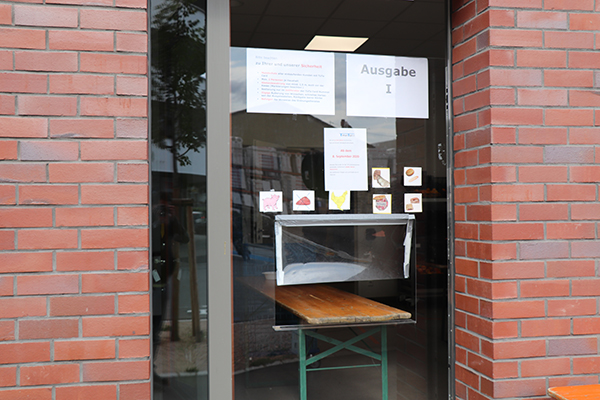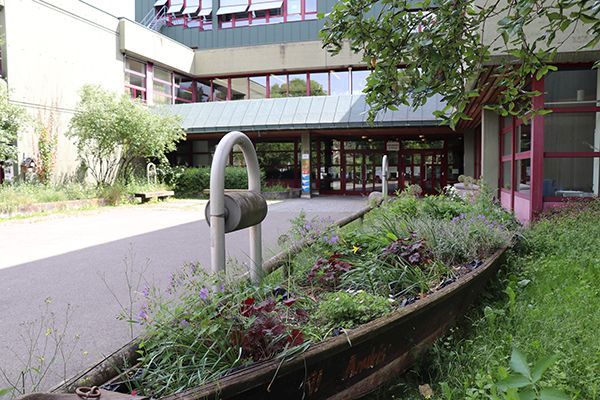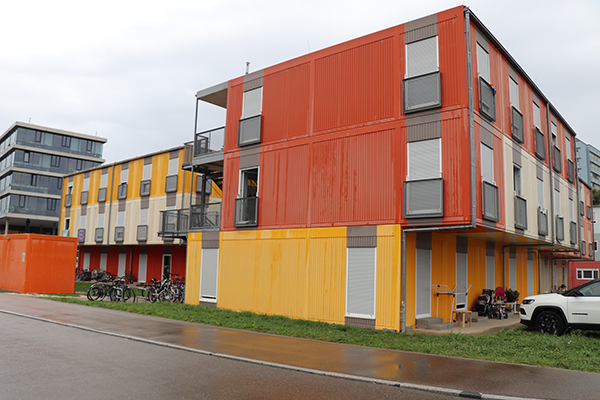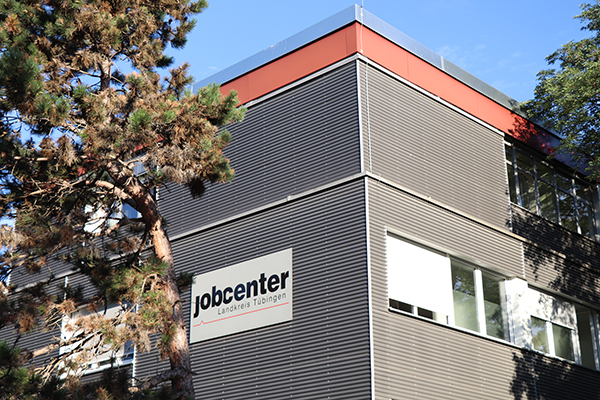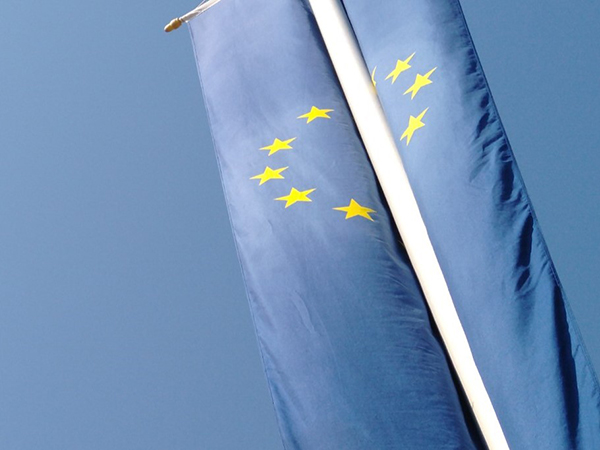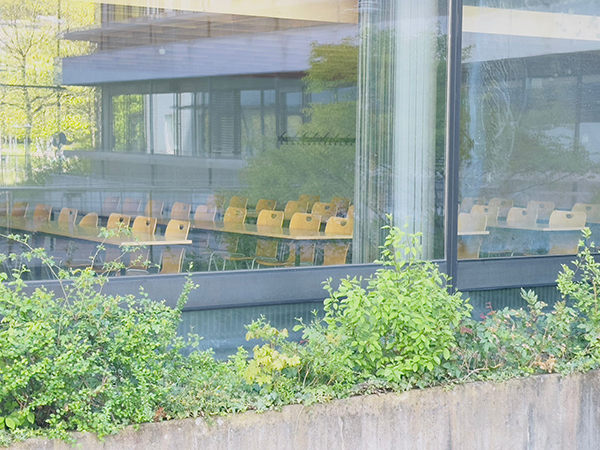Eat cake, drink coffee or juice and talk to each other without having to pay: Tafel customers can do all of this in the café at Eisenbahnstraße 57 in Tübingen. It opened in September 2023. There is space for guests at bistro tables inside and on an outdoor terrace. Refugees often find people in the café with whom they can talk in their native language. The Tafel café is open to its customers on Tuesdays, Thursdays and Fridays from 3 to 5 pm. More about the Tübinger Tafel at https://www.tuebingertafel.de/ tun24061701 www.tuenews.de Der tübinger Tafelladen in der Eisenbahnstraße. Foto: tünews… Read More
Category: 982 – UK .EN
Prize honors integration projects
Tübingen is awarding the Integration Prize again this year for the first time since Corona. Applications can be submitted until Monday, August 5. The prize honors projects and initiatives in Tübingen. They should promote diversity, equal opportunities for participation, cohesion in the city and combat discrimination. The projects can be active in areas such as culture, politics, social affairs, art, language and sport. The winning project receives 3500 euros, the second 1500 euros and the third-placed project 700 euros. An independent jury will decide on the winners. Guidelines and application documents can be found on the city’s website and can… Read More
Representing interests on the Integration Council
The city of Tübingen is looking for candidates for the Integration Council—especially people with a history of immigration. It represents the interests of these people in Tübingen. Applicants must be at least 16 years old and have lived in Tübingen for at least six months. Applicants should be interested in local political issues. They should also have experience with migration and want to work for good integration policy in Tübingen. The Integration Council meets around eight times a year. Anyone who would like to get involved should therefore have time to work in working groups of the Integration Council and… Read More
Information for newcomers on the education system
How does a kindergarten work? What requirements must my child fulfill in order to attend? How do I choose the right school for my child? Where can I do vocational training? These and many other questions are frequently asked by new parents in Germany. The project “frEi—Early Integration of Newly Arrived Parents” aims to help families who have arrived in Baden-Württemberg to get to know the education system. It also aims to provide them with easy-to-understand information that meets their needs. Parents can find a range of multilingual videos and information brochures on the project’s website. They explain the education… Read More
Warning of flight risks increases the desire to emigrate
Since 2015, the European Union (EU) has been promoting information campaigns in countries of origin of refugees. The aim of these campaigns is to raise awareness of the dangers of flight and people smuggling by smugglers, thereby reducing irregular migration. A study by the International Organisation for Migration (IOM) has now investigated the impact of these campaigns. Interviews with around 13,000 young adults in local areas of ten countries in Africa and Asia, including Nigeria, Pakistan, Afghanistan and Somalia, were analysed. The surprising result: if the interviewees were aware of the campaigns, they did not have the effect of deterring… Read More
Job turbo: work and learn German
For a long time, the rule in Germany was: learn German first, then look for work. The government have now changed their strategy. With the “job turbo”, it is now possible to switch directly to employment after the integration course. Job-related language courses, for example to reach level B2, can then be completed alongside employment. The offer is aimed in particular at refugees from Ukraine, who should be able to earn their own income quickly and become independent of the citizen’s income. This was announced by the Federal Ministry of Labor. This involves closer contact with the job center: Participants… Read More
EU agrees on new common asylum policy
On April 10, 2024, the European Parliament approved the reform of the Common European Asylum System (CEAS), which has been planned for eight years. This so-called asylum compromise must now be approved by all EU countries in the Council of the EU in May, which is considered certain. The agreed legislation will then come into force. However, they will take two years for the EU countries to implement and will therefore only be applied from the second half of 2026. The Federal Government must present an implementation plan by the end of this year. To this end, various legislative amendments… Read More
German scholarship program for refugee researchers
The Philipp Schwartz Initiative for Academic Refugees in Germany helps refugee researchers in need of protection from all over the world with scholarships. With a two-year scholarship, which can be extended for a further year, refugee academics can continue their work at German universities and research institutions. The initiative is part of the Alexander von Humboldt Foundation’s programs. Applicants must have a doctorate or equivalent qualification, refugee status or proof of a vulnerable situation. They must not have lived outside their country for more than five years. The application must be submitted via a German university or research institution. Applicants… Read More
Human rights under extreme threat globally
International law is being increasingly disregarded internationally. ‘The rule of law and human rights are under greater threat worldwide than they have been for decades’, writes the human rights organisation Amnesty International in its 2023/24 annual report. ‘We condemn the fact that nationalist, racist and misogynist forces are gaining support worldwide’, says Amnesty Secretary General Julia Duchrow. Because these forces ‘attack the idea of equal dignity and equal rights for all people in word and deed’. Civilians are particularly at risk The report points out that civilians ‘are increasingly defenceless in armed conflicts because governments, security forces and armed groups… Read More
Recipients of Citizen’s Income must pay for cable TV themselves
Cable TV will become more expensive for many recipients of Citizen’s Income from July 1. Because landlords will no longer be able to charge the fees as ancillary costs, tenants will have to take care of a cable connection themselves and conclude their own contract. Citizen’s Income recipients will have to pay for it themselves. The employment agency Reutlingen confirmed at the request of tuenews INTERNATIONAL. Previously the job center had covered the costs for cable television as part of the accommodation costs if they were included in the ancillary costs. There are no exceptions according to the employment agency.… Read More

